2017/18
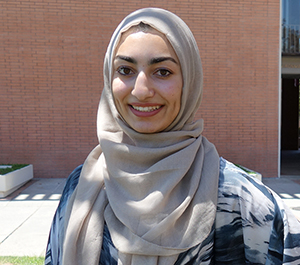
Noha Ayoub

Noha Ayoub is a junior at USC majoring in Law, History and Culture and minoring in Middle East Studies. During her month-long fellowship, Ayoub watched dozens of testimonies about the Rwandan Genocide and supplemented her viewing with texts about nationalism in order to contextualize the stories the survivors tell in their testimonies.
Ayoub’s research project focused on the political identities of the Tutsis and the Hutus and the ways they changed over time. She examined what needs to happen politically to incite people to violence, including the normalization and legitimization of violence in public discourse, and the relationship between a nation-state project and political violence. Watching testimonies of survivors in the Visual History Archive helps Ayoub get to know the real people who were affected by anti-Tutsi rhetoric. The archive is a “collective memory,” she said, where survivors can corroborate their stories and offer anecdotal evidence that these crimes occurred.
To watch her lecture click here.
To learn more about Noha Ayoub click here.
2016/17
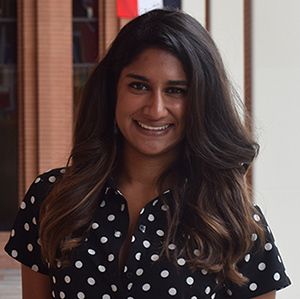
Nisha Kale

Nisha Kale is a USC undergraduate student who is double majoring in Neuroscience and Law, History, and Culture. The DEFY Undergraduate Summer Research Fellowship allowed her to apply her interests in both neuroscience and history to the field of genocide studies. She did so by examining survivors’ reactions to stress —not after the genocide, as most similar research focuses on, but while the genocide was actually occurring. To do so, she watched testimonies from the Holocaust, Rwandan and Armenian collections in the Visual History Archive, looking for interviewees’ descriptions of particularly stressful events such as killings, beatings, forced marches and mass executions, and observing how the survivors described reacting to these events as they were happening. In her analysis she found that men had a higher rate of fight or flight responses, and women had a higher rate of tend and befriend responses in the contexts she was exploring.
To watch her lecture click here.
To learn more about Nisha Kale click here.
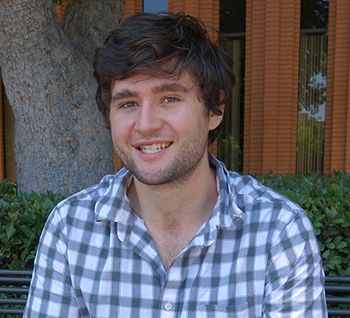
Griffin Williams

During his month-long fellowship, Williams, a junior history major at USC, built on the research he began with Center director, Wolf Gruner, about prisoner escapes and death marches during the Holocaust. He primarily focused on death marches - how Nazi officers treated the prisoners on the marches, what caused prisoner casualties and deaths, and how commonly-held narratives about death marches may oversimplify what really happened. Two of the foremost authorities on death marches are Daniel Blatman (The Death Marches) and Daniel Goldhagen (Hitler’s Willing Executioners), who suggest that death marches were a final act of Nazi cruelty intended to kill the remaining Jews – but Williams said the testimonies in the Visual History Archive offer a more nuanced view of death marches that suggest there was much more variation in how prisoners were treated than either of those scholars acknowledge.
Williams intends to turn the research he’s conducted during his DEFY fellowship into his honors thesis, which he hopes will widen our perspective on both German and American behavior during the Holocaust. He’s seen that not all Germans were vicious, and that Americans are not completely without fault.
To learn more about Griffin Williams click here.
2015
Orli Robin
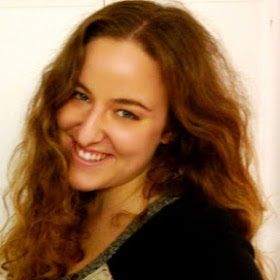
B.A. Creative Writing, Minor Judaic Studies, Minor Resistance to Genocide Studies, '15

Christina Schoellkopf
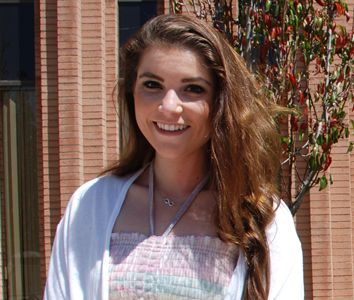
B.A. Broadcast and Digital Journalism, B.A. History, '15

"Through the education I have received as a history major with a thematic concentration in “Comparative Genocide and the Construction of Otherness,” I am eager to pursue an honors thesis about the role of the press as a “passive perpetrator” and “incautious bystander” during cases of mass violence. Thus, using the testimonies of survivors, such as Kizito Kalima and Francoise Muteteli, and aid providers, including Carl Wilkens and Roméo Dallaire, I can search for a deeper understanding from those who lived through it. By watching Kizito Kalima’s testimony and utilizing the index tool for “Radio Rwanda,” I can research how the radio in Rwanda gave orders that informed localized killings. I will use this same technique to research anti-Tutsi propaganda, discrimination, and prejudice in order to understand how anti-Tutsi-ideologies were circulated and consequently informed perpetrators. I plan to use the testimonies of survivors, like Freddy Mutanguha, to understand how Tutsi individuals were separated as a group in local communities. Mutanguha shares his experience of anti-Tutsi education, anti-Tutsi measures and anti-Tutsi humiliation, which would help me tackle the overarching question of my history honors thesis: how are pre-genocidal ideologies constructed, institutionalized and perpetuated to the extent that they support the indiscriminate killing of men, women and children of a marginalized group?"
Project: Research for honors thesis
United States
53.092603, 101.425781